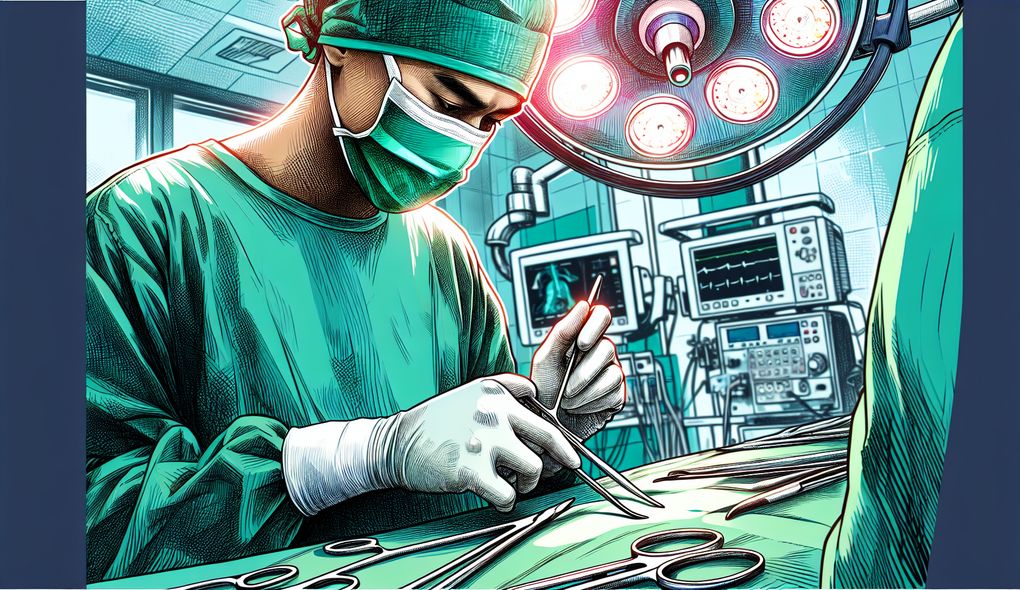What steps do you take to ensure excellent manual dexterity and hand-eye coordination?
JUNIOR LEVEL

Sample answer to the question:
To ensure excellent manual dexterity and hand-eye coordination, I practice specific exercises and techniques on a regular basis. For example, I participate in activities such as playing video games or assembling intricate puzzles to improve my hand-eye coordination. I also engage in manual dexterity exercises like finger stretching and grip strengthening exercises. Additionally, I make sure to maintain good physical health by exercising regularly to enhance my overall coordination and dexterity.
Here is a more solid answer:
For maintaining excellent manual dexterity and hand-eye coordination, I employ a combination of targeted exercises and practical experiences. Firstly, I regularly perform fine motor skill exercises, such as manipulating small objects with precision and practicing intricate hand movements. Additionally, I engage in activities that challenge my hand-eye coordination, such as playing musical instruments or participating in sports that require precise hand-eye coordination. Secondly, to enhance my coordination and dexterity in a practical setting, I have actively sought out opportunities to volunteer or shadow experienced professionals in surgical settings. By observing and assisting during surgeries, I have been able to develop and refine my manual dexterity and hand-eye coordination skills in a real-world context.
Why is this a more solid answer?
The solid answer provides more specific details about the steps taken to improve manual dexterity and hand-eye coordination, as well as relevant practical experiences. It highlights the use of fine motor skill exercises and activities that challenge hand-eye coordination. Additionally, it emphasizes the importance of gaining practical experience in surgical settings to enhance these skills. However, it could further improve by mentioning any specific certifications or courses related to hand-eye coordination and manual dexterity.
An example of a exceptional answer:
To ensure excellent manual dexterity and hand-eye coordination, I employ a comprehensive approach. Firstly, I engage in specialized hand exercises recommended by occupational therapists, targeting various hand muscles and fine motor skills. These exercises involve using tools like therapy putty, hand grippers, and finger exercise devices. Secondly, I have completed certified courses in hand-eye coordination improvement, which focus on activities like juggling, playing musical instruments, and performing precise hand movements. These courses have equipped me with specific techniques and strategies to enhance coordination and dexterity. Furthermore, to apply these skills in a surgical context, I actively participate in simulation labs and other surgical training programs that involve tasks requiring precise hand-eye coordination, such as suturing and instrument manipulation. By consistently practicing these techniques and gaining hands-on experience, I have developed a high level of proficiency in manual dexterity and hand-eye coordination.
Why is this an exceptional answer?
The exceptional answer provides a comprehensive and detailed approach to ensuring excellent manual dexterity and hand-eye coordination. It mentions specialized hand exercises recommended by occupational therapists and certified courses specifically geared towards hand-eye coordination improvement. It also highlights the importance of gaining practical experience through simulation labs and surgical training programs. This answer demonstrates a strong commitment to continuously improving these skills and showcases a high level of proficiency. However, it could be further enhanced by linking these skills to the responsibilities of a Surgical Technician and emphasizing the candidate's understanding of the relevance of manual dexterity and hand-eye coordination in the role.
How to prepare for this question:
- Research and explore various hand exercises and techniques recommended by occupational therapists to improve manual dexterity and hand-eye coordination.
- Consider taking certified courses or workshops focused on hand-eye coordination improvement to gain specific knowledge and strategies.
- Engage in activities that challenge hand-eye coordination, such as playing musical instruments, participating in sports, or practicing hobbies that require precise hand movements.
- Seek opportunities to gain practical experience in surgical settings, such as volunteering or shadowing experienced professionals, to enhance your skills in a real-world context.
- Reflect on how manual dexterity and hand-eye coordination are relevant to the responsibilities of a Surgical Technician. Be prepared to discuss specific examples of how these skills have contributed to your ability to provide quality patient care during surgeries.
What are interviewers evaluating with this question?
- Manual dexterity
- Hand-eye coordination

